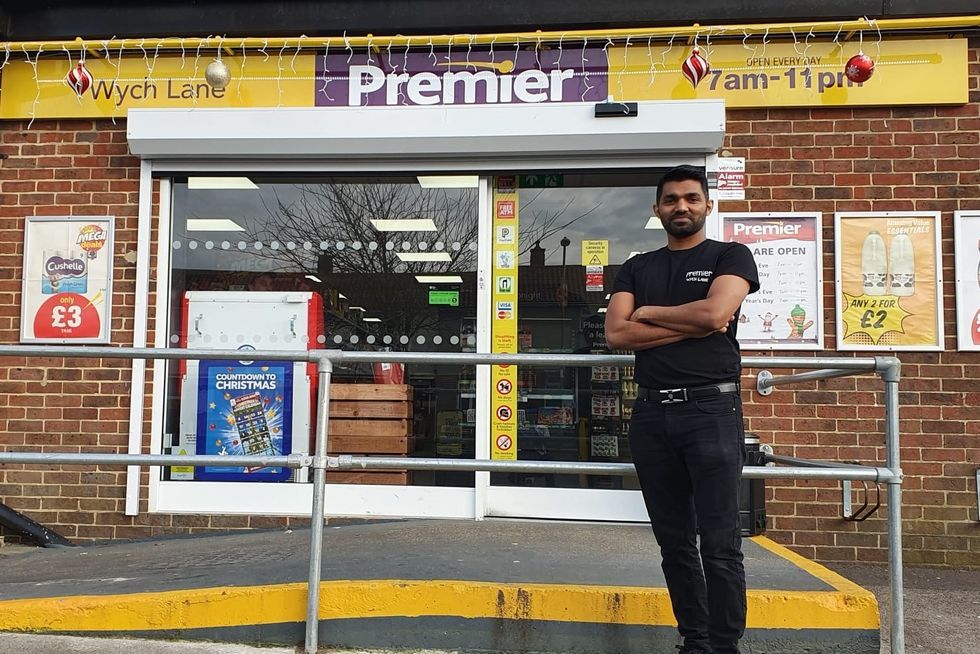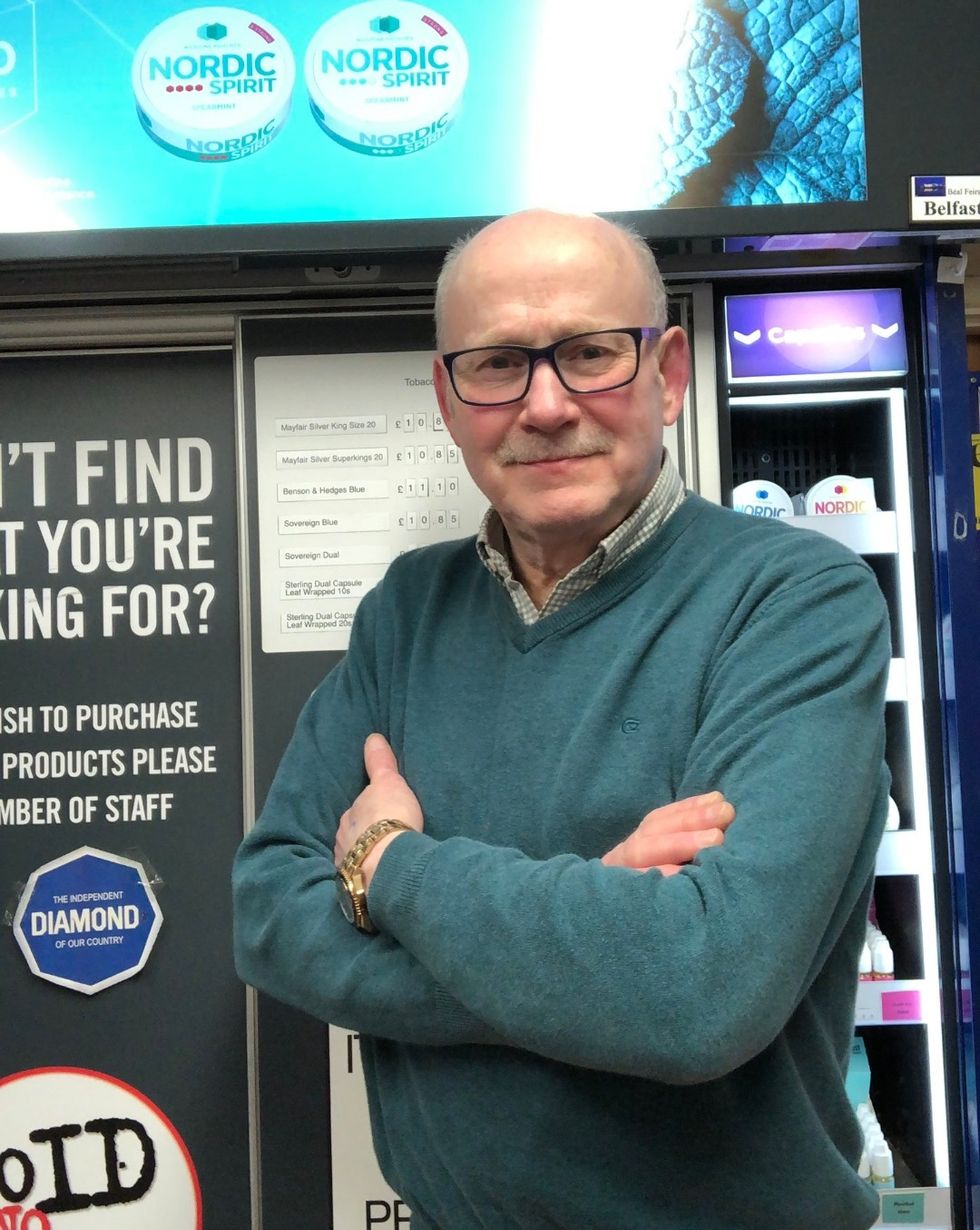Retailers are feeling lack of proper support and protection to run their businesses confidently as they are getting burdened with a slew of back-to-back, overwhelming and often confusing legislations, Asian Trader has learnt.
Amid cost-of-living crisis, retailers in the country are fighting their own demons like squeezed margins, higher running costs, lower footfall and even-lower consumer confidence.
On the top of all these, new developments and announcements of new rules understandably tend to create further problems and anxieties.
Tiresome burden
On Jan 20, Defra published the joint government response to the second consultation on their proposals for a Deposit Return Scheme (DRS) in England, Wales and Northern Ireland. The announcement is in line with government’s efforts to eliminate avoidable plastic waste.
There are plans to introduce the DRS from Oct 1, 2025. DRS in England and Northern Ireland will include polyethylene terephthalate (PET) bottles, and steel and aluminum cans (glass bottles are excluded from the consultation proposal).
There is lot of confusion among retailers regarding DRS in England with many being totally oblivious about it and their roles and responsibilities in it. Industry experts, on the other hand, are largely unimpressed with the scheme – partly due to incompatibilities among the nations.

DRS per se is not a new concept as schemes of returnable glass bottles were commonplace back in the 1960s and 70s until the rising popularity of plastics ended the practice. On the face of it, the idea of DRS is a simple one- it incentivises consumers to return containers by charging a small deposit that is subsequently refunded.
However, it is turning out to be an expensive, confusing and burdensome system for retailers as the collection of returned bottles will fall on them. It is also being claimed that recycling initiative will lead to higher prices for consumers, further putting them in the line of shoppers’ fury.
Helen Dickinson OBE, Chief Executive of the BRC, believes DRS should not be rushed.
“DRS is a complex and expensive policy that should not be rushed. Any environmental benefits would need to be commensurate with the cost.
“We also want an aligned system across the UK, it must truly be cost-neutral for retailers, and the start date must be no sooner than 1 year from the Scheme Operator being up and running,” Dickinson told Asian Trader.
Sarah Coleman, Director of Communication at TWC, too feels that DRS is a complicated system “marred with complexity”.
“TWC is supportive of DRS and other sustainability initiatives. HOWEVER, the scheme is marred with complexity as to what is included and excluded and a lack of consistency across the four nations,” she said.
DRS in Scotland is set to come into force from August this year thought the fate of the same seems to be in limbo.
“Scotland, which is going first, is highlighting the impracticalities of the scheme. Lack of space for reverse vending facilities in small stores will emerge as an issue, putting an intense extra financial pressure due to the cost-of-living crisis,” Coleman said.
Slew of Bans
Whether sugar content or nicotine- it seems that it is just the store owners rather than public in general who are supposed to carry the responsibility of overall community health.
From October last year, stores over 2,000 sq ft are no longer allowed to place products High in Fat, Salt and Sugar (HFSS) near checkouts, entrances or at the end of aisles. With these regulations came a lot of confusion as it was not clear for quite long a time that which stores will be covered. To comply, store owners had to make the changes around the store to avoid the wrath of Trading Standards.
Coleman from TWC feels that the changes must have been tricky for retailers to manage.
“This is yet another thing for busy retailers to manage – how much scope is there for a convenience store retailer to rearrange their store, how well do retailers understand the (complex) restrictions in terms of which categories, whether their store is in scope or exempted,” Coleman said, also raising concerns of impact of HFSS restrictions on sales.
Such restrictions impact the overall profits of retailers. Around 40 per cent of the chocolate and snacks company’s UK sales are “impulse” buys, so the new rules have had some effect on Halloween sales, admitted Cadbury’s parent company Mondelez CEO Dirk Van de Put.
However, at the same time, it is also being pointed out that the shoppers who want to buy confectionery, they still do that in the same amount from the aisles, whether they are present near till and entrance or not. So, in a way, the restructuring of the store might have seen lesser health benefits and more of mere unnecessary inconvenience for affected store owners.
Another line of products to come on the radar of activists and health experts is disposable vape, majorly due to its increasing use by young people and a nuisance as disposed waste.
To counter the former, Local Government Association, which represents councils in England, is calling for vaping products to be subject to the same rules as cigarettes – sold in plain packaging and kept out of reach and sight of children, preferably behind shop counters.
Additionally, Action on Smoking and Health (Ash) is calling on Chancellor Jeremy Hunt to set out a £4 excise tax on single disposable vapes on top of the usual £4.99 price. The charity also suggests product names resembling sweets or featuring cartoon characters should be banned, and anyone who looks under 25 should be asked for ID in shops.

Pointing out that vaping is one of the fastest growing categories in C-stores, Coleman from TWC feels that the prospect of increased taxes and the category “going dark” in order to tackle the popularly of vaping amongst children is likely to significantly impact sales of vaping products.
In a recent survey conducted by TWC with independent retailers, six in 10 expected demands for vaping products to increase in the next six months, therefore these restrictions are likely to “impede this growth”, Coleman said.
If tax and cigarette-like rules come into effect, it is definitely going to impact stores’ books. Considering the fact that vapes are known to carry a far better margin than cigarettes and are a great magnet for new footfalls, such rise in anti-vape sentiment and probability of added restrictions are met with lukewarm response by retailers.
A retailer for 43 years, Ballymena-based Eugene Diamond understands all the issues concerning here but assures that retailers are already doing their part well.
"We are very compliant with the rules. No underage person stands a chance of buying vapes in my store since both my team and I are very stringent.
“We also understand that disposal of them can be a problem but because they're so small. We can contribute here as well by providing them recycle boxes for vapes. But in the end, its more about the end-used how the user is disposing them. It’s no surety that even if retailers put a recycling bin, people will actually use it and not dispose them carelessly like they do,” pointed out Diamond.
Both Middlesbrough-based Vijay Kalikannan and Hampshire-based Imtiyaz Mamode too revealed that they are aware of the rise of vapes’ popularity among teens so they always take extra care when they visit their stores.

“Lots of school children are seen vaping. There are a lot of fruity flavors that catch teens’ fancy but at my store, we always keep an eye on them to make sure no underage is able to purchase any,” Kalikannan told Asian Trader.
Reacting on reports that a slew of restrictions and/or taxes might be introduced to vapes very soon, retailer Mamode even questioned the onus of parents, schools and community in this regard.
“Instead of banning and restricting stuff and putting pressure on us, why the government do not consider educating the children and society in general? Why the onus falls on us every time?”
Rather than policing the store owners, government, parents, teachers and society in general should focus on better education and awareness of children and teens in terms of smoking and vaping, said Mamode.
Lack of Support and Protection
In today’s time marred with inflation, higher bills and lower consumer confidence, what is need of the hour is protection, confidence and apt support.
However, violence and abuse against people working in retail has almost doubled on pre-pandemic levels, states the latest BRC Crime Survey, revealing that incidents, including racial and sexual abuse, physical assault, and threats with weapons, rose from the pre-Covid high of over 450 per day in 2019-20, to over 850 per day in 2021-22.
Northern Ireland-based retailer Diamond seems to echo the similar picture.
"In the last five years I have faced more crime than I had done in the previous 35 years. I am constantly trying to keep the staff safe. We still have a panic button in the shop for a long time. We do try to stay safe but things have just gotten worse.”

“Over the last five years, I've had four or five attempts of break-in and two attempted robberies but prior to that there in the 30 odd years we had one attempt at robbery. Crime seems to be getting just worse,” said Diamond, just a week after becoming the victim of yet another horrible crime, video of which was shockingly posted on social media by the perpetrator.
Apart from break-ins and robberies, it is petty shoplifting that also has gone up, draining both retailers’ profit and mental peace.
“It's too got worse. Sometimes, it becomes very hard to look after every item in the store, especially when it’s the peak hour. I would say key here is sadly to take the loss and hope that it stays at a minimum level while trying our best to keep a watch,” he told Asian Trader.
Apart from mental trauma, retail crime bears a huge financial cost as well. The recent BRC survey reveals the total cost of retail crime stood at £1.76 billion in 2021-22. £953 million was lost to customer theft, with eight million incidents of theft over the year. Retailers also spent £715 million on crime prevention in 2021-22.
Although an amendment to the Police, Crime, Sentencing and Courts Act with the aim to better protect people working in retail has been brought-in, the Home Office currently does not track the use of this amendment, making it impossible to understand if the changes are having an impact, states BRC.
Retailer Mamode says he feels unprotected and vulnerable.
“We don't have enough protection for the store as well as for the employee who works here or even shoppers. Anytime anything happens and situation changes in a second. Even the police don't help much,” he said.
It is clear that more needs to be done here as local shops with minimal, rather mostly zero security are the most vulnerable targets for thieves, robbers and other anti-social elements, even rowdy teenagers. Clearly, local shops are support system of a society and they are in dire need of urgent support themselves, rather than bans, restrictions and confusing legislations.
“Government should reduce business rates. With minimum wage going up from April along with reduced energy bill support, something concrete needs to be done as it is becoming extremely difficult for small convenience stores to run business,” Kallikannan concluded.





